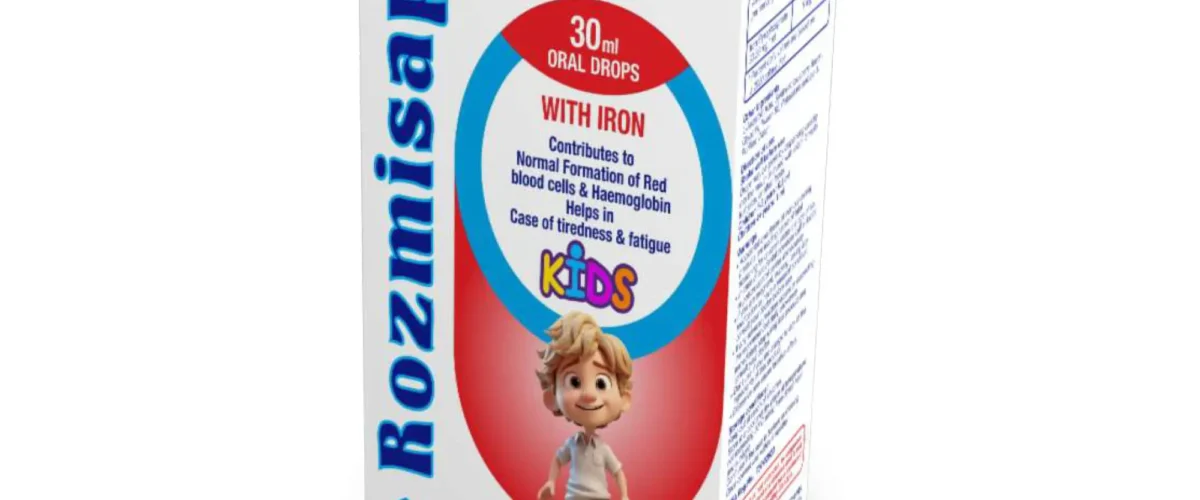
The essential vitamins for kids and their specific benefits
The essential vitamins for kids and their specific benefits
- Stronger Bones
Children can run, jump, and play to their hearts’ delight if their bones are in good health! By encouraging bone formation and activating bone-building cells called osteoblasts, Vitamin A helps to keep your bones dense and strong, which can reduce the risk of bone-related issues like fractures.
- Less Risk of Infections
Vitamin A helps to protect against infections by supporting the production of white blood cells.2 It plays a vital role in the immune system’s response to infections. It supports the body’s first line of defense by helping to maintain healthy skin and mucous membranes that act as a barrier against invading pathogens
- Enhanced Cognitive function
Retinoid acid, which comes from vitamin A, is an important molecule that signals the brain to regulate genes, promote nerve growth and survival, and support brain function. With vitamin A’s support, children can ace their exams, and learn new skills with ease.
- More Energy from Food
Vitamin B1, also known as thiamine is an amazing nutrient that is essential for turning the food that children eat into energy. It boosts energy production by speeding up the process of turning sugar into energy while supporting other important enzymes
- Protected Internal Organs
There’s more to vitamin B1 than meets the eye! This essential nutrient can also provide protection against a range of health issues, including those affecting the heart, stomach, intestines, muscles, neurological system, and brain. Specifically, it can help prevent beriberi, a condition in children characterized by increased heart rate, shortness of breath, and swelling of the lower legs
- More Balanced Electrolytes
Vitamin B1 plays a role in the penetration of electrolytes into muscle and nerve cells. Electrolytes have a significant impact on various bodily functions, such as maintaining the body’s water balance, regulating the pH of the blood, and keeping the muscles healthy
- Better Vitamin Absorption
Riboflavin or vitamin B2 is a key component of coenzymes that help with cell growth and energy production, as well as the breakdown of fats, steroids, and medications. Similarly, vitamin B can convert tryptophan into niacin, an important amino acid that helps the body absorb and activate other important vitamins like iron, folic acid, and vitamins B1, B3, and B6. These vitamins are also crucial for maintaining healthy mucous membranes in the digestive system and liver
- Faster Metabolism
Vitamin B6 is involved in the production of neurotransmitters, which are chemicals that help to relay messages between the cells in the body. This means that vitamin B6 can play a role in supporting cognitive function and mood regulation, which is especially important for growing kids
- Red Blood Cell Production
If you’re looking to prevent or treat anemia, vitamin B6 may be helpful. This vitamin also plays a key role in the production of red blood cells, which carry oxygen to your body’s tissues
- Improved Mood
Vitamin B12 may also improve mood! It is necessary for the production and breakdown of serotonin, a substance that controls emotional responses. According to a study, people who received both antidepressants and vitamin B12 were more likely to experience improvements in their depressive symptoms than those who only received antidepressants
- Protected Cells
Vitamin C works tirelessly to protect your cells from the harmful effects of free radicals.20 These pesky little molecules can cause all sorts of health issues, including heart disease and cancer, but luckily, Vitamin C is there to help save the day
- Iron Storage
Additionally, Vitamin C also helps your body absorb and store iron, which is essential for optimal health. The body uses iron to make hemoglobin, a protein in red blood cells that carries oxygen from the lungs to all parts of the body, and myoglobin, a protein that provides oxygen to muscles.
- Better Calcium Absorption
Whether you prefer to get your Vitamin D from food, the sun, or supplements, it’s clear that this nutrient is crucial for maintaining a healthy and strong body. This powerhouse nutrient helps build strong bones by helping our bodies absorb calcium and phosphorus.
- Enhanced Muscular Performance
Incorporating Vitamin D into an everyday routine can impact muscle performance. Not only does it help build and develop them, but it also plays a role in regulating muscle movement. Similarly, having higher levels of Vitamin D has been shown to improve muscle protein production, strength, jump power, and exercise capacity



